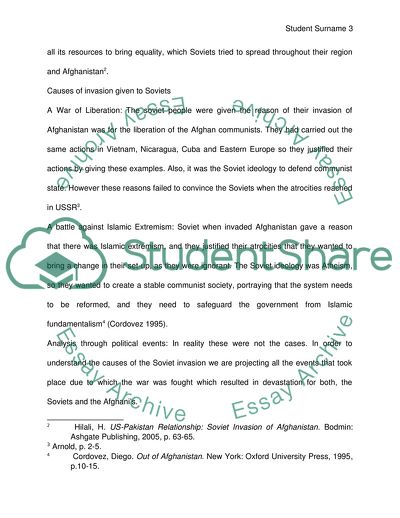Cite this document
(Causes of Soviet Intervention in Afghanistan Report Example | Topics and Well Written Essays - 4000 words - 1, n.d.)
Causes of Soviet Intervention in Afghanistan Report Example | Topics and Well Written Essays - 4000 words - 1. https://studentshare.org/military/1804552-what-caused-the-soviet-intervention-in-afghanistan-in-1979
Causes of Soviet Intervention in Afghanistan Report Example | Topics and Well Written Essays - 4000 words - 1. https://studentshare.org/military/1804552-what-caused-the-soviet-intervention-in-afghanistan-in-1979
(Causes of Soviet Intervention in Afghanistan Report Example | Topics and Well Written Essays - 4000 Words - 1)
Causes of Soviet Intervention in Afghanistan Report Example | Topics and Well Written Essays - 4000 Words - 1. https://studentshare.org/military/1804552-what-caused-the-soviet-intervention-in-afghanistan-in-1979.
Causes of Soviet Intervention in Afghanistan Report Example | Topics and Well Written Essays - 4000 Words - 1. https://studentshare.org/military/1804552-what-caused-the-soviet-intervention-in-afghanistan-in-1979.
“Causes of Soviet Intervention in Afghanistan Report Example | Topics and Well Written Essays - 4000 Words - 1”. https://studentshare.org/military/1804552-what-caused-the-soviet-intervention-in-afghanistan-in-1979.


